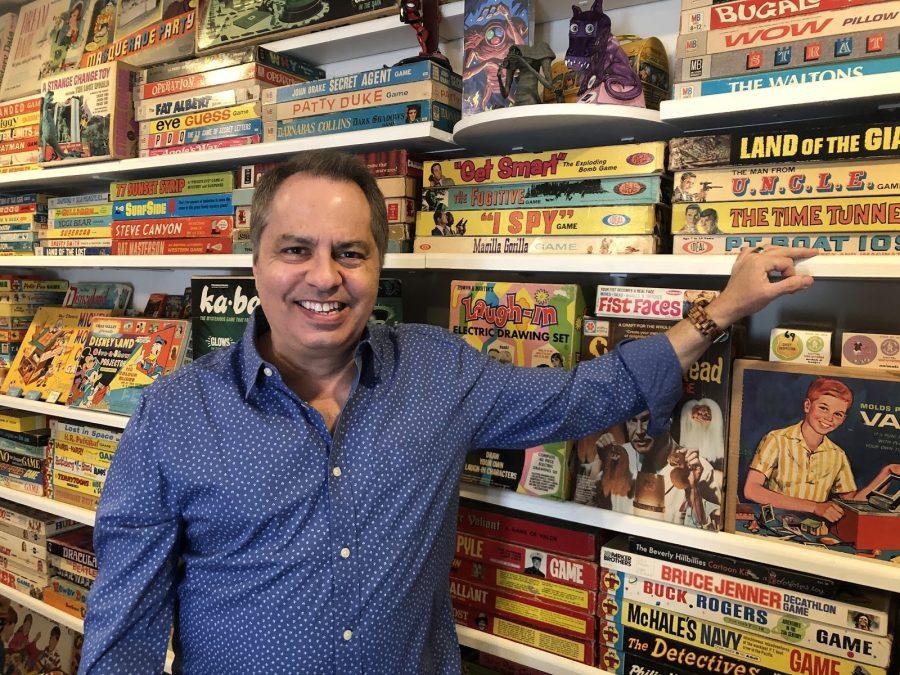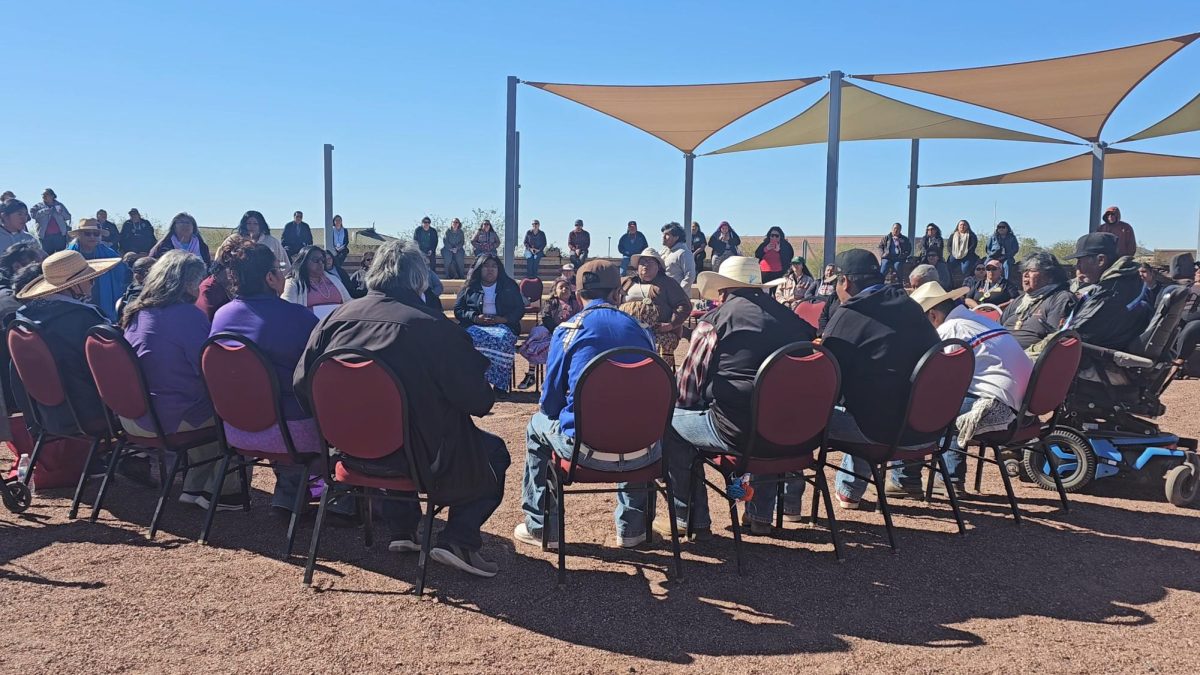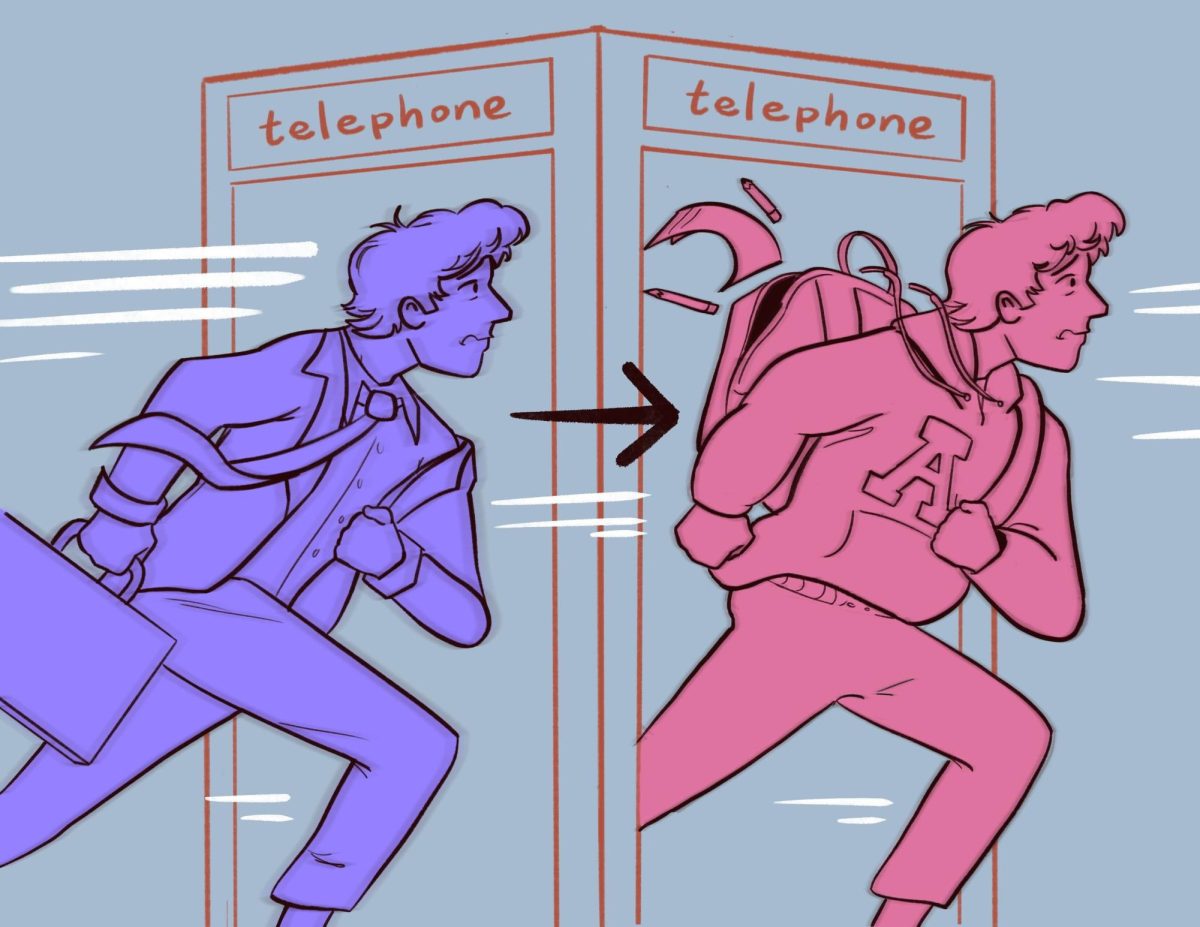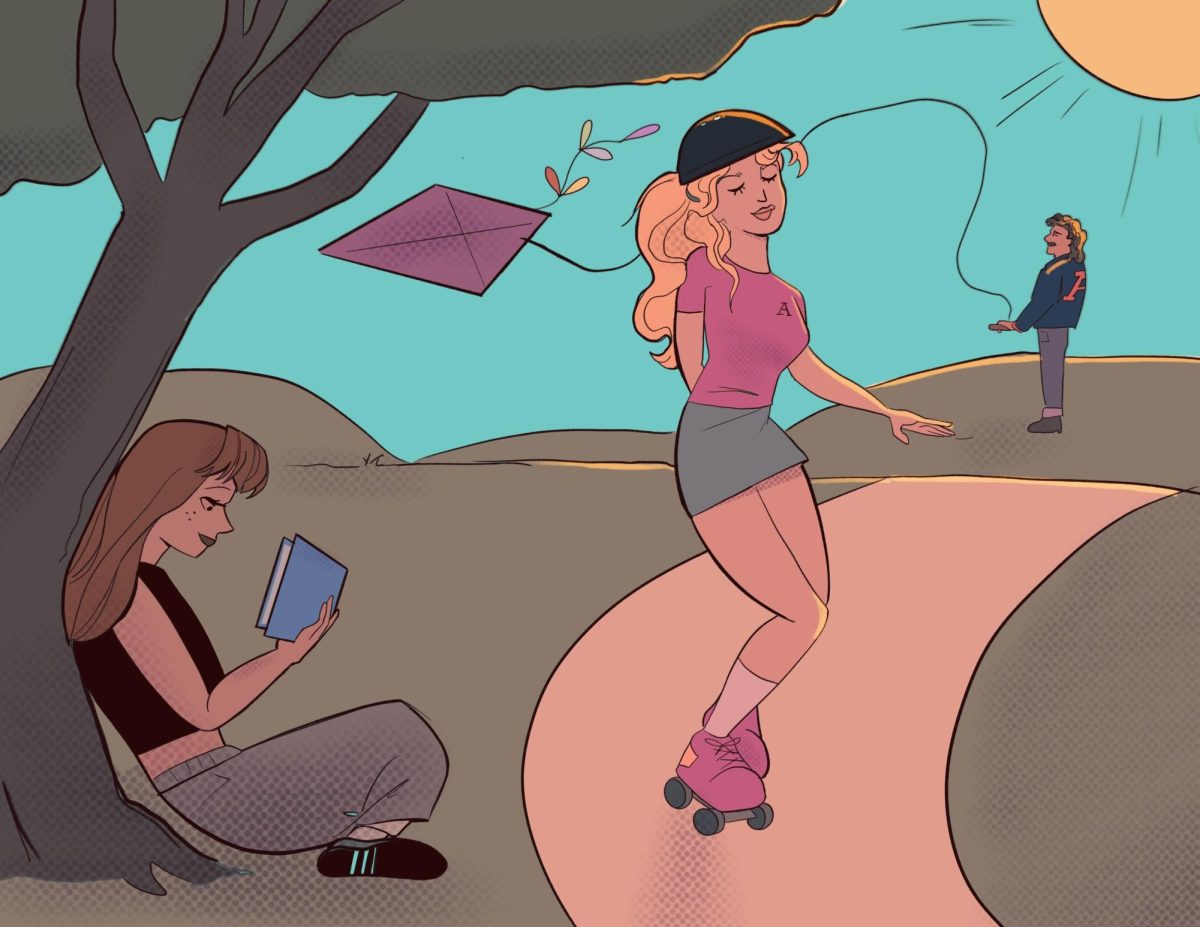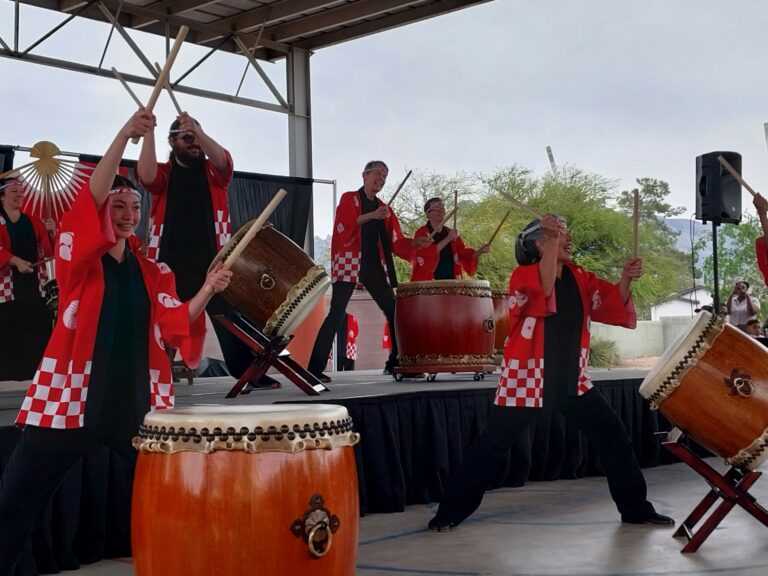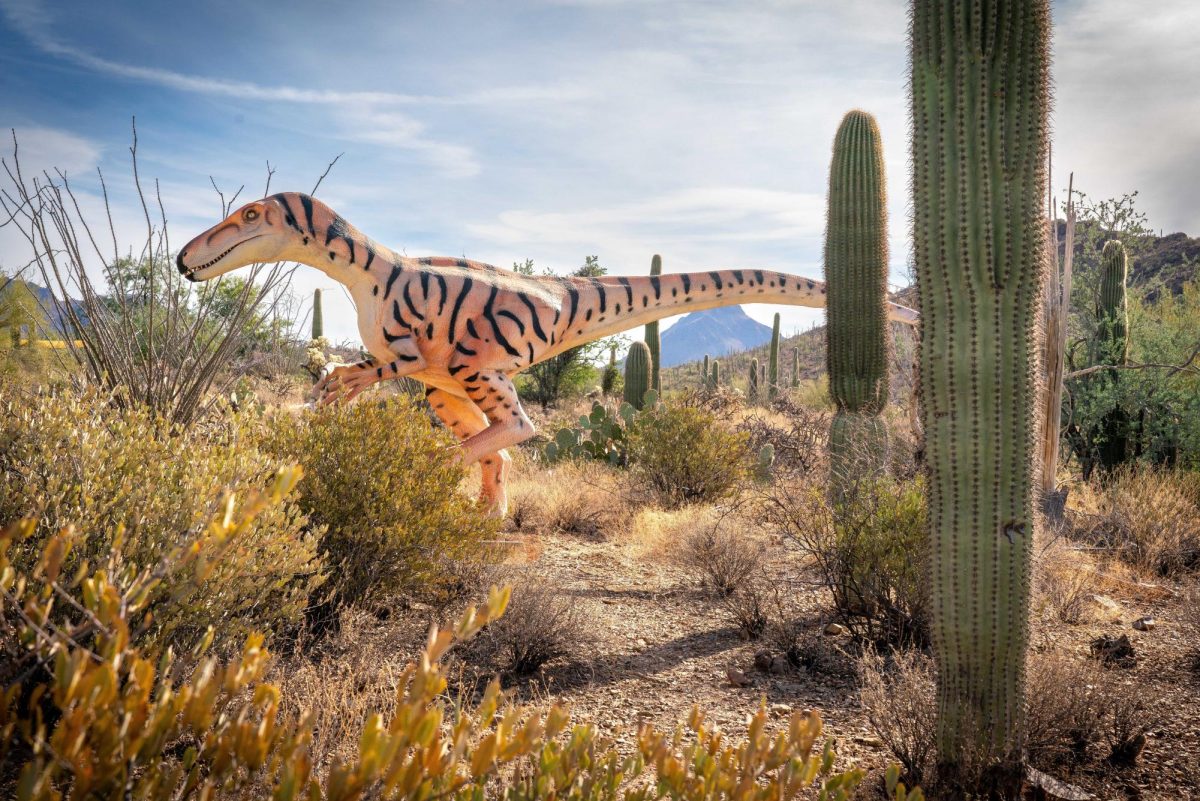For many college students, “The Simpsons” is a staple cartoon. With the first “The Simpsons” shorts airing in 1987, the show has been alive longer than many University of Arizona students. On Feb. 15, students in the UA School of Anthropology professor David Soren’s Art History of the Cinema class were given the opportunity to attend an exclusive online lecture with Rick Polizzi, a former producer of “The Simpsons” and a family friend of Soren’s.
With Soren’s help, the Daily Wildcat was able to sit down for a one-on-one interview with Polizzi.
In front of a backdrop of collectible board games, Polizzi spoke animatedly about his creative endeavors, the industry and the making of “The Simpsons.”
RELATED: UA alumni form popular music trio SZN and release EP
Daily Wildcat: Can I ask about all the games behind you?
Rick Polizzi: Yeah, I collect old toys and so I converted my garage into a game room. Most of it is in storage unfortunately, but I like all the artwork and we’ll play them. It’s not a museum, so if people come in and want to pull stuff down and start playing with it, I encourage that. But I like it because of the artwork and the nostalgia.
DW: Do you have a favorite game you like to play?
RP: No, not really, there’s a bunch of cool ones. We would always play Barbie Queen of the Prom, so there were some we would always go back to. In here, we just pull one off the shelves and see if it’s fun or not.
DW: As an artist, what motivates you to create?
RP: I just like putting on shows, and I like the creative process of repurposing things, so I’ll find stuff at regular consumer stores and take them apart and re-work them. We had a bunch of these talking Christmas trees that we took apart and turned into pumpkins, with the eyes and mouths that moved, and they became a chorus that sang along with the skeleton band. Things like that, that’s what’s fun, to take stuff and see if you can rework it to fit what your storyline or narrative is.
DW: When did you first decide that you wanted to pursue a career in film?
RP: Oh, since I was a little kid. I was always making movies with my film camera. I always liked the story aspect of it and making movies.
DW: What led you to pursue animation as opposed to live action film?
RP: I always wanted to deal with both, but animation was easy to do on your own. I didn’t really draw much so it was more animating inanimate objects, and that’s easy to do on your own. You don’t need a gigantic crew to do that. I would make little films growing up, and you could work alone without having a cast of characters to help out. That started that. And I liked cartoons as a kid, and I thought it was a cool direction, so I gravitated towards it.
RELATED: What’s Up, Docs? The Loft Cinema presents annual showcase of UA student documentary films
DW: Do you have any advice for students who are aspiring to enter the film and television industry?
RP: Find the field that you like and stick with it. I always recommend internships, they’re starting to pay more now. Before, people would not do them as much because there was no pay, but I always recommend people doing that. We could get interns all the time on “The Simpsons,” and if you worked well, usually you kind of knew the system and we hired you when we needed somebody.
DW: If you could go back in time to when you were in your twenties and give yourself any piece of advice, what would you tell your younger self?
RP: I’d probably say take things more seriously rather than just goofing off. Hanging out with friends is important, but take advantage of the time you have there to be creative. When you’re in your 20s and 30s, you really have some creative juices flowing, and a lot of kids just want to go to the bars and hang out. And while it’s good to let off steam, I would say focus and take things a little more seriously. But still, have fun — I still want to do that every day as well.
DW: In your time working on “The Simpsons,” what was the work environment like?
RP: It was always fun. Near the time I left, it started getting more measured, and people didn’t find it as creatively freeing and as fun, but it was always a ragtag team of guys trying to draw wacky things.
DW: Much of “The Simpsons” humor is provocative and based in stereotypes. Now that we have entered into a time where many social issues are at the forefront, and we are looking critically at the media we consume, how has the Simpsons held up in this time of social reflection?
RP: “The Simpsons” were never super controversial. When they came out, they thought Bart was not a good influence for kids, that he was kind of a smart mouth. But overall, they were fairly tame compared to what goes on with animation now, with “Adult Swim” and everything and even “South Park” took over the reins as being the bad boy of animation early on. “The Simpsons” were a family, they went to church on Sundays, so they weren’t as controversial as a lot of people thought. To me, their humor was not over-the-top and controversial like a lot of other things are, so I never had a big problem with it.
DW: Do you ever find yourself watching an episode now and thinking, “We could not get away with releasing that today?”
RP: To me, there’s not that much that “The Simpsons” did that I thought was so bad that you couldn’t get away with it now. You’ll see on other shows that happens, but like I’m saying, “The Simpsons” was kind of tempered, and fit middle America for the most part. To me, that’s still why it’s lasted so long, because it had sitcom values that people could flock to but wasn’t so terrible and controversial that it was always in the news … so it was kind of middle of the road but high brow humor because all the writers were from Yale, Harvard and all the Ivy League schools, things like that. It wasn’t lowest common denominator comedy, and I think that stuck around.
RELATED: Around the Corner: Celestial Rites calls upon its fighting spirit during COVID-19 pandemic
DW: Any comments on the theory that “The Simpsons” predicts the future?
RP: When you’ve been on so long, again, there have been more episodes of the show than any other television show. Truth is stranger than fiction. You’re going to come up with ideas that seem absurd but somehow make it into the news. There’s been a lot of talk about in one episode set in the future, Lisa says, “President Trump left us with a big deficit,” so they predicted that it was going to be President Trump. That was shot years and years ago as a joke, but the writer’s first joke was “President Depp left us in a lurch.” They were just trying to get some wacky celebrity who we thought was an absurd person to be president. The joke was first written as President Johnny Depp, and after the writer[s] got together they said, “Yeah, that works, but this would be even more absurd because Trump has political aspirations, throw that name in. That makes it sound even more absurd.” … But there are some uncanny things that have happened on the show that have kind of happened in real life. It’s interesting, but there’s no crystal ball in the room that everyone is sitting around consulting like, “What[‘s] going to happen next in the future so we can write about it ahead of time.” You’ve just got so many people coming up with absurd ideas and occasionally some of them are going to coincide with real life.
DW: And what is the first thing you want to do when this pandemic is over?
RP: Gee whiz, I want to be able to travel around a little bit more and also just go out to eat and get together with people; you kind of take that for granted. I want to go to a restaurant.
Follow Tia Stephens on Twitter



